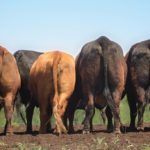Climate change initiatives such as carbon taxes might elicit a lot of negativity in the Canadian agriculture sector. But ignoring them could also mean ignoring big opportunities, according to Alastair Handley, president of Radicle (formerly Carbon Credit Solutions). He’s been involved in carbon markets since 2007, when he started developing a system for Alberta farmers













